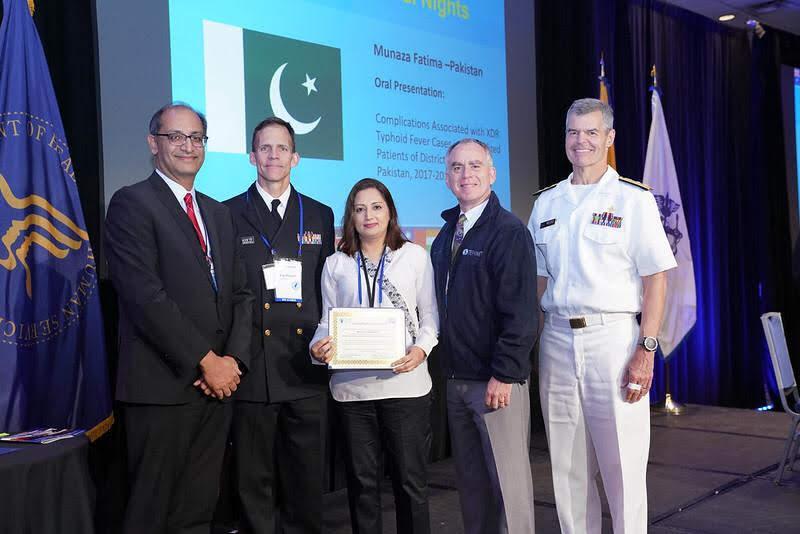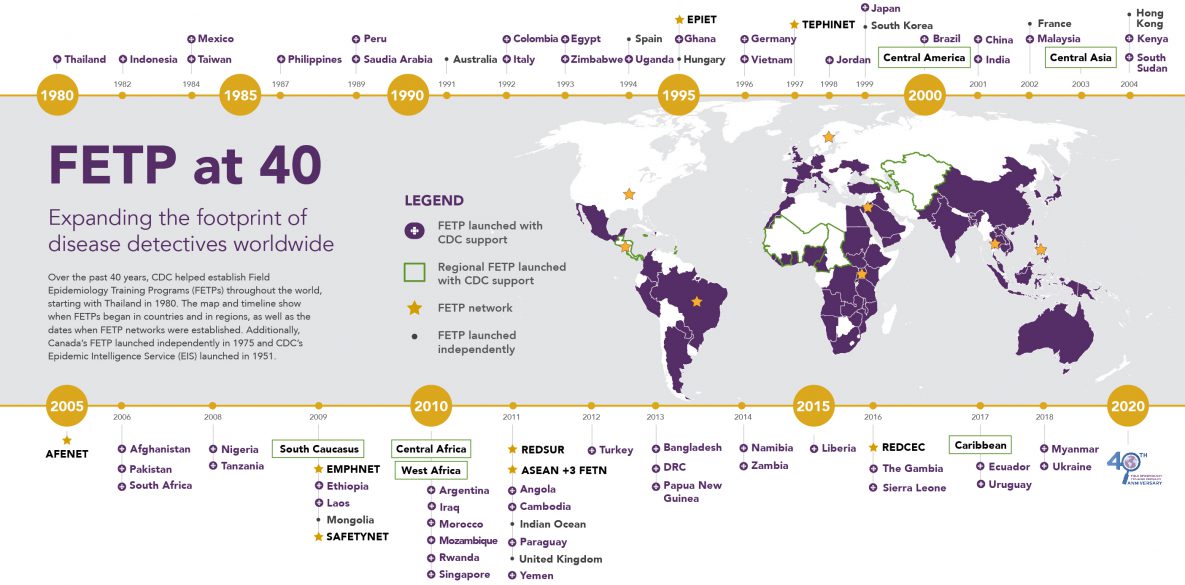FETP 40th Anniversary
March 12, 2021

We train people who we sometimes call disease detectives. They go beneath the surface to try and identify: What are the causes? What can we do to control the diseases?
– Jared Omolo, MD
Epidemiologist, CDC Rwanda
Since 1980, CDC has helped train more than 18,000 disease detectives in over 80 countries through its flagship global Field Epidemiology Training Program (FETP). 2020 is the 40th anniversary of CDC supporting the establishment of Thailand’s Field Epidemiology Training Program, the first FETP site created outside of North America.
FETPs expand CDC’s reach by training public health professionals to investigate and respond to disease outbreaks and other health threats. Through these programs, countries help fulfill the International Health Regulations (IHR) requirements for disease surveillance and response, and strengthen their capacity by conducting surveillance, analyzing data, and making sound evidence-based decisions. FETPs also work to address the increasingly important burden of noncommunicable diseases.
FETP graduates are CDC’s “boots on the ground” and play a critical role in ensuring global health security. They do this by strengthening the public health workforce and expanding regional and global disease detection networks available during crises.
Throughout 2020 and into 2021, DGHP has shared stories and information about the FETP program, its members, and the work that they do around the world.

Dr. Fatima Munaza is a Data Usage and Risk Assessment Officer in Pakistan’s National Stop Transmission of Polio (N-STOP) program based in Karachi. In 2019, she graduated from the Pakistan Field Epidemiology and Laboratory Training Program (FELTP). We asked Dr. Munaza how her FELTP training has added value to her career as an epidemiologist…
Read all of our FETP 40th Anniversary Stories
Visit our FETP 40th Anniversary Photo Gallery
FETP is really one of the most exciting programs that we have. It has allowed us to work shoulder to shoulder with a lot of the governments throughout the region.
– Emily Zielinski Gutierrez, DrPH
Director, CDC Central America Region
Learn more about FETP’s work through these videos, developed by CDC and our partners.
- Field Epidemiology Training Program (FETP) 40th Anniversary Video
- TEPHINET FETP at 40 Videos, including CDC, TEPHINET (Training Programs in Epidemiology and Public Health Interventions Network) and AFENET (African Field Epidemiology Network)


